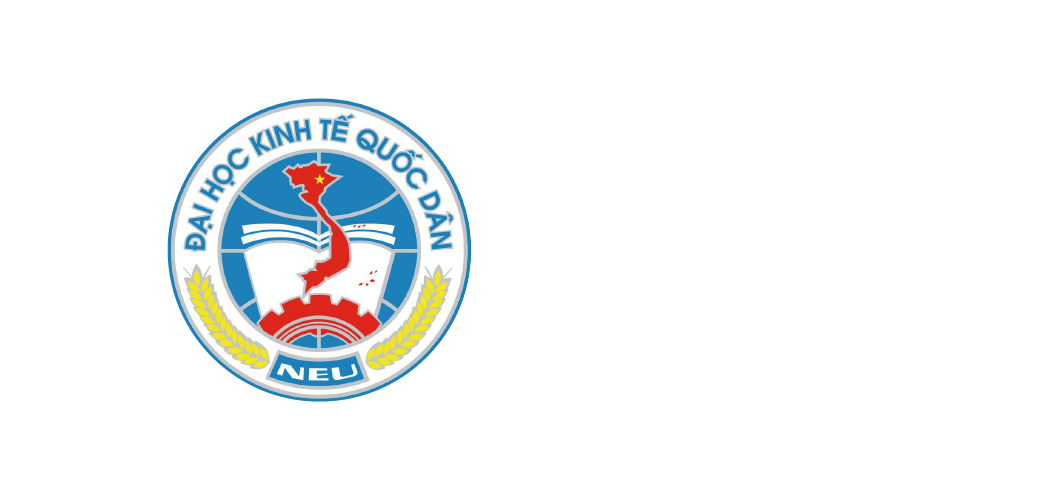Dưới dây là danh sách các seminar đã và sắp được thực hiện của Trường Công nghệ.
Khoa Toán Kinh tế: 14h00 Thứ Sáu hàng tuần theo lịch dưới, tại phòng 1108 hoặc trên nền tảng online.
| Thời gian – Phòng | Chủ đề | Diễn giả |
|---|---|---|
| Thứ Năm, 6.3.2025
Phòng 1108 |
The Investment Function in Financial-Services Management
Abstract: |
Trần Ngọc Khánh Linh Phùng Bảo Ngọc SV lớp Actuary 64 |
| Thứ Năm, 27.2.2025
Phòng 1108 |
Các chỉ số cảnh báo sớm | Đào Mai Linh Trần Thị Huyền Thương SV lớp Actuary 64 |
| Friday, Feb 21, 2025
Thứ Sáu, 21.2.2025 |
Dual Caregiving and Survival of the Economy
Abstract: |
Trần Quang Thanh – Đại học Tohoku, Nhật Bản |
Lab DAAI: Seminar trực tiếp 14h00 Thứ Ba hàng tuần, tại phòng 1107 hoặc 1108 hoặc online
| Thời gian – Phòng | Chủ đề | Diễn giả |
|---|---|---|
| Thứ 2, 9AM, 24/03/2025 (Online) |
Artificial intelligence and digital pathology for personalised cancer medicine
Abstract: References[1]. D-T. Hoang et al. (2024), “Prediction of DNA methylation-based tumor types from histopathology in central nervous system tumors with deep learning”, Nature Medicine.[2]. D-T. Hoang et al. (2024), “A deep-learning framework to predict cancer treatment response from histopathology images through imputed transcriptomics”, Nature Cancer.[3]. D-T. Hoang et al. (2025), “Path2Omics: Enhanced transcriptomic and methylation prediction accuracy from tumor histopathology”, bioRxiv. |
Dr. Hoàng Danh Tài
Tiến sĩ Hoàng Danh Tài hiện là Nghiên cứu viên cao cấp tại Viện Nghiên cứu Ung thư Quốc gia Hoa Kỳ, trực thuộc Viện nghiên cứu Sức khoẻ Quốc gia Hoa Kỳ (National Institutes of Health – NIH). Anh nhận bằng Tiến sĩ Vật lý Lý thuyết tại Cộng hoà Pháp, sau đó tiếp tục nghiên cứu Sau tiến sĩ tại Hàn Quốc và Mỹ, trước khi đảm nhiệm vị trí Nghiên cứu viên tại Đại học Quốc gia Úc, và quay lại Mỹ gần đây. |
| Thứ Năm, 14h 13.03.2025 (Online) |
Integrating Neural Networks and Expert Systems for Industrial Machine Automation
Abstract: |
Dr. Nguyen Manh Toan
He is a Researcher in Mathematics and Machine Learning at the University of Osnabrueck, Germany. His recent work focuses on the application of Machine Learning in various fields. He has participated in several projects on computer vision and robot control funded by the German government and industry partners. |
| Thứ 3, 13h30 04.03.2025
Phòng 1108 |
DeepSeek R1 – exploration – Part I
Abstract: In this seminar, we’ll explore how Deepseek R1 was developed, how its creation differed from standard approaches, and what future advancements could build upon this breakthrough in accessible reasoning models. |
Nguyễn Quang Hưng Dương Phương Giang Sinh viên DSEB 64A |
| Thứ 3 13h30 25.02.2025
Phòng 1108 |
A survey on Agentic RAG
Abstract: With the rise of Agentic AI, which bridges DATA and other AI tools within enterprises, RAG has reached a new level—ensuring updates and synchronization across responses throughout the entire system, business workflows, operations, and management. The Multimodal AI trend is expanding the input and output formats of virtual assistants beyond just text, making them more adaptable to end-user needs than ever before. Several ongoing projects at DAAI leverage and develop RAG techniques. This talk aims to equip DAAI members with deeper insights into RAG while also providing an opportunity for the community to share and exchange ideas on this topic. |
|
| 14h00
Thứ Năm |
Hedging of financial instruments
Abstract: The volatility of financial markets and the complexity of modern financial instruments have underscored the critical importance of hedging strategies in managing risk. This seminar delves into the principles, tools, and practices of hedging in the context of financial products, providing a comprehensive overview tailored for professionals, academics, and students in finance. |
Speaker:
Nguyễn Thị Hồng Hạnh |


